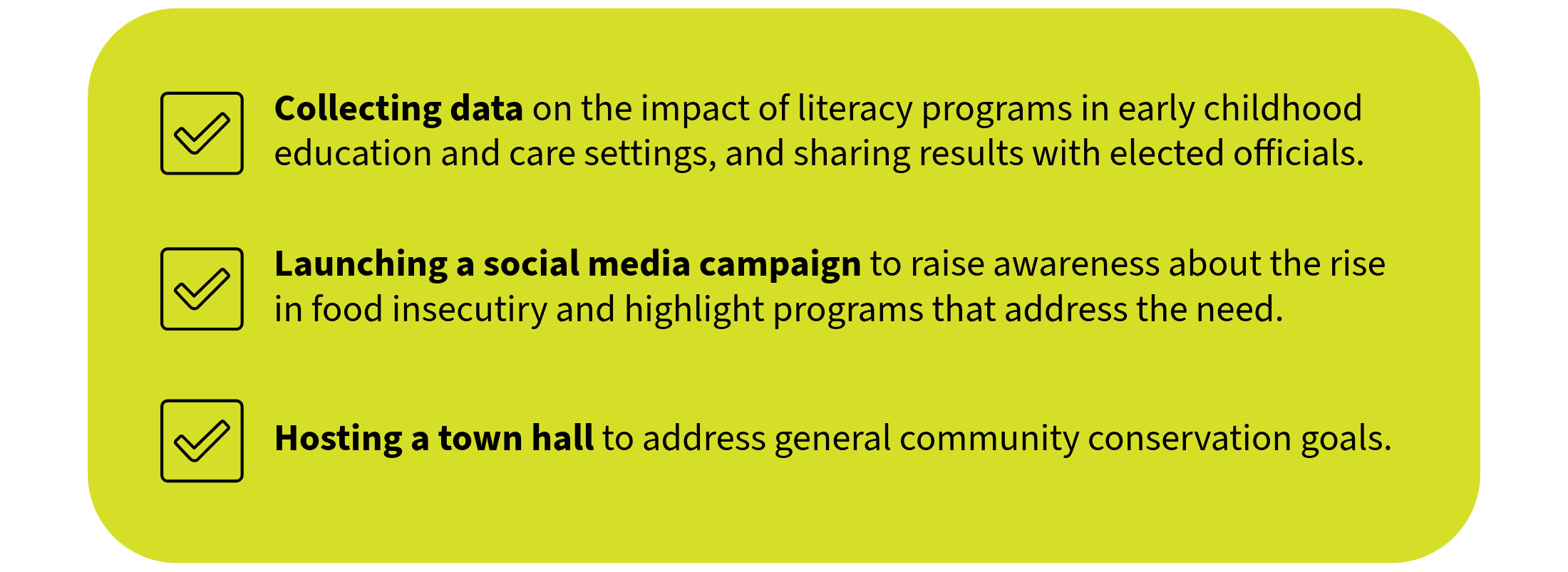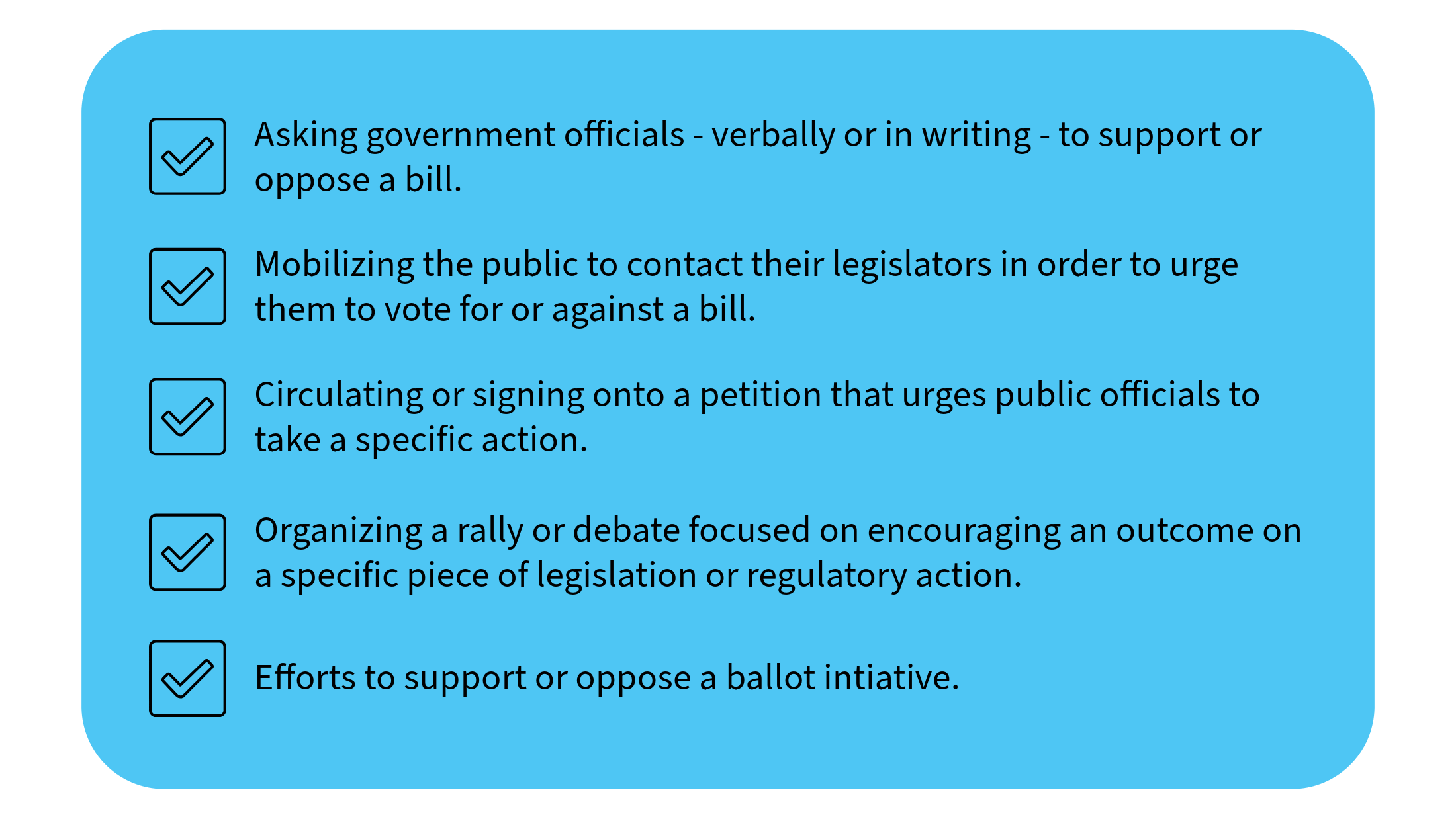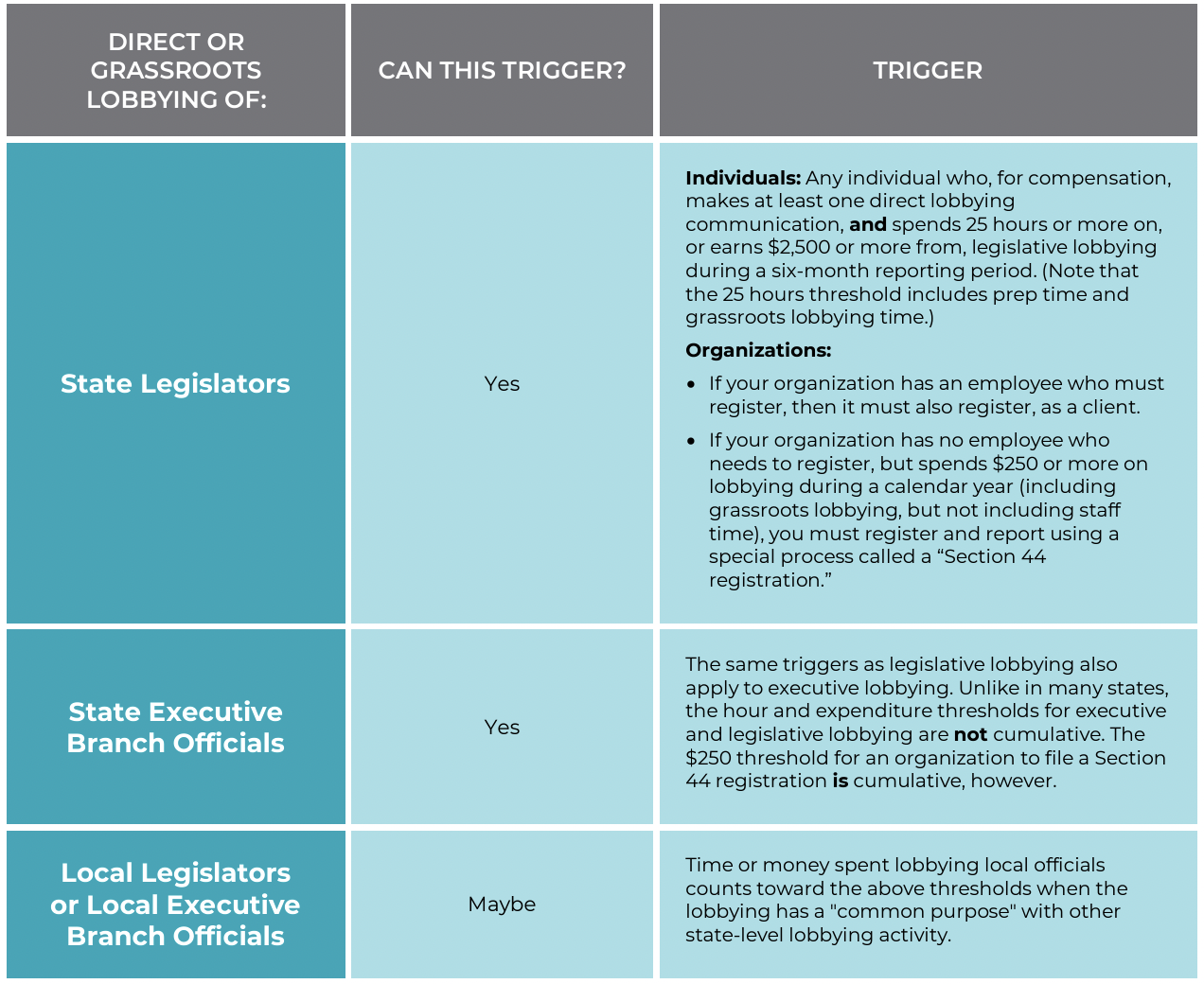
Allow this page to help you and your organization navigate the seemingly complex world of public policy advocacy and lobbying. MNN’s intent is to demystify these concepts and encourage you to get involved!
The terms “advocacy” and “lobbying” are related but not interchangeable. Both are important tools that can help advance nonprofits, their missions, and their bottom line.
Anyone can engage in unlimited advocacy, and also in lobbying with some restrictions. This guide provides tips to get started and resources to help nonprofits comply with lobbying registration requirements. Most of the guide focuses on Massachusetts rules but there are also Federal rules that may be found here. And, if you plan to lobby officials in the city of Boston, please check here.
What is advocacy?
Simply, advocacy is communicating about an issue, raising awareness, and providing education.
What is lobbying?
Lobbying is a form of advocacy that requires communication and an attempt to influence specific legislation. For example, lobbying involves directly supporting or opposing a specific piece of legislation or regulation and/or attempting to influence a policy maker or their staff.
Massachusetts Specifics
State law defines two types of lobbying – legislative lobbying and executive lobbying
Legislative lobbying: activity directed at state legislation, including the introduction, sponsorship, support, or opposition of a bill, or the Governor’s approval or veto of a bill.
Executive lobbying: activity directed at any decision of an officer or employee of the executive branch or of a statewide authority concerning legislation, the adoption or defeat of a rule or standard, or a procurement decision.
Please note that both definitions also include “strategizing, planning, and research” (“Back Room Lobbying”) conducted in furtherance of the lobbying activity.
Additionally, both definitions include attempts to influence the decisions of local officials that share a “common purpose” with state level lobbying.

Advocacy Action Steps
RESEARCH: Collect qualitative or quantitative data, synthesize and produce objective facts and findings.
EDUCATE: Share research and/or general information about your mission, services, and the people you serve with policymakers and staff, members of the media, or the general public.
RAISE AWARENESS: Circulate information about your field and mission area through meetings or events, mailings, letters to the editor, or through social media.
ORGANIZE: Mobilize individuals, develop groups or coalitions to speak out about general issues, identify community leaders, businesses, associations, and other organizations to facilitate informational discussions.
IDENTIFY SOLUTIONS: Identify possible solutions and develop a range of related policy proposals that would address the problems that your organization works to solve.
Examples of Advocacy

Types of Lobbying
Direct Lobbying
Direct lobbying involves communication with any member or employee of a legislative body or with any government official or employee with a request regarding a specific policy, proposal, or funding.
Grassroots Lobbying
Grassroots lobbying involves communicating directly with the general public in an attempt to influence, organize, or mobilize the general public on specific issues and to encourage the public to contact government officials.
Examples of Lobbying

Advocacy vs. Lobbying: Key Differences
Advocacy is an umbrella term that captures all actions that a nonprofit takes to advance a cause. Lobbying is one specific type of advocacy; it refers to an attempt to influence a specific existing or potential piece of legislation or regulation by urging lawmakers (directly or indirectly) to support or oppose a specific action.
While nonprofits can conduct an unlimited amount of advocacy, under Federal rules, nonprofits established under Internal Revenue Code Section 501(c)(3) must limit the amount of lobbying they do so that “no substantial part” of an organization’s activities consists of lobbying. Additionally, Massachusetts requires individuals and entities engaged in lobbying to register with the Secretary of the Commonwealth.
What Lobbying Activities Trigger Registration and Reporting Requirements in Massachusetts?

Source: Practical Guidance, What Nonprofits Need to Know About Lobbying in Massachusetts
Additional resources:
- Secretary of the Commonwealth
- MA General Laws on Lobbying
- Practical Guidance, What Nonprofits Need to Know About Lobbying in Massachusetts
- Lobbyist Educational Seminar
- Political Campaigns:
- Under the Internal Revenue Code, all 501(c)(3) organizations are absolutely prohibited from directly or indirectly participating in, or intervening in, any political campaign on behalf of (or in opposition to) any candidate for elective public office. 501(c)(4), (5), or (6) organizations may engage in political campaigns, provided that such activities are not the organization’s primary activity.
- However, nonprofits MAY conduct voter registration and get-out-the-vote drives so long as they are conducted in a neutral, non-partisan manner, for example, without reference to any candidate or political party.
- NAEYC shares helpful information here.
